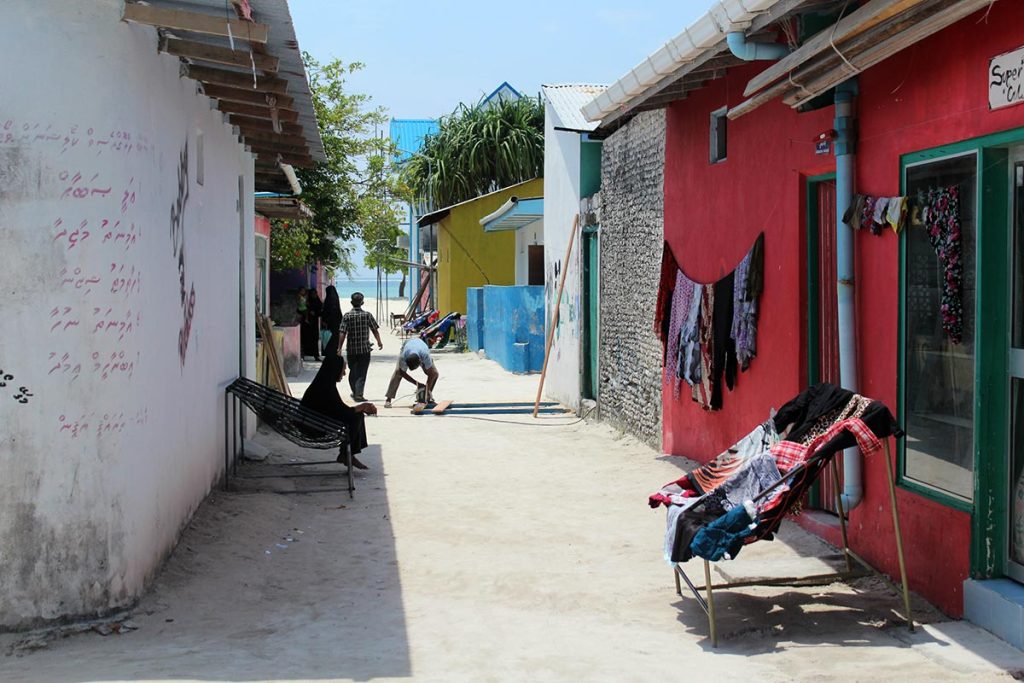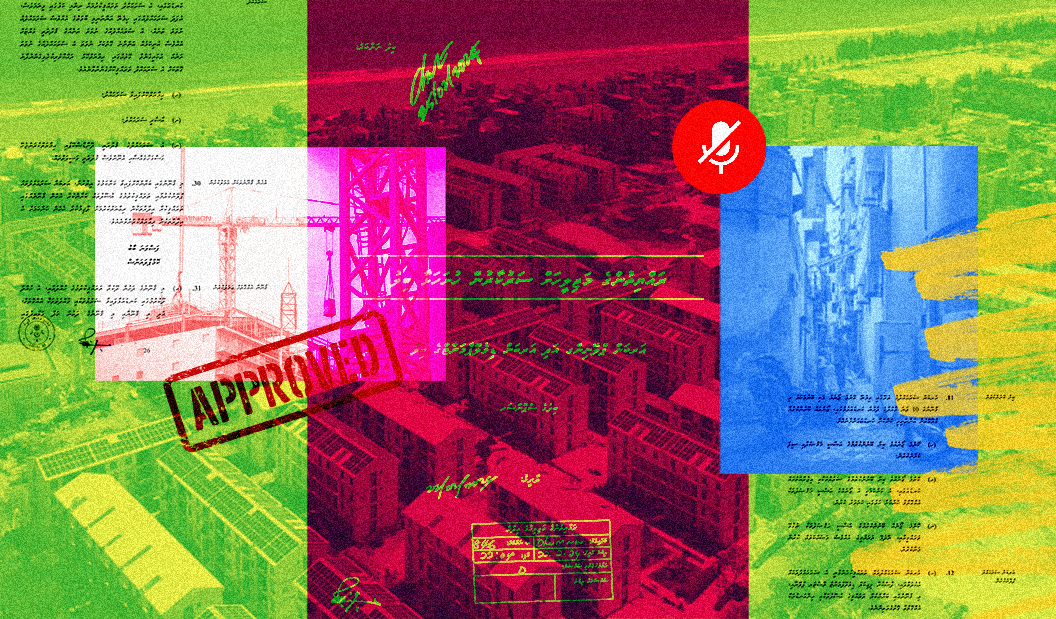For the local governance system in the Maldives, change appears to have been the only constant. The Decentralization Act has been revised and amended fervently throughout the period of its existence, over the past 14 years. Many local councils and advocates for local governance note with concern the lack of sufficient breathing space and time for the councils to adapt and implement their plans in alignment with these continuous changes.
However, yet again, we seem to be on the brink of change – this time, with the introduction of the Urban Development Bill to the parliament in a manner that can only be described as unnecessarily hurried and rushed, and ratifying the Urban Development Act on 8 September 2024. A statement issued by the recently established Maldives Local Councils Association on 22 August 2024 urged the National Development and Asset Committee and the Decentralization Committee of the Majlis to facilitate greater dialogue and discussion, engaging technical experts, civil society and most importantly, local councils. The association, which is currently comprised of 3 City Councils, 6 Atoll Councils and 20 Island Councils, also highlighted the Urban Development Bill as well as proposed amendments to the Decentralization Act would deter ensuring resources were being utilized in the most effective manner to benefit, and to address the needs of, island communities. On the same day, the association, jointly with the International Republican Institute (IRI), conducted an online information session on the bill for local councils, where participants expressed similar sentiments of concern and apprehension.
An overview of concerns raised regarding the Urban Development Act:
- Lacking recognition of the ‘Atoll’
The word Atoll was derived from the Dhivehi word atholhu, and since ancient times, historians have written of the significance and recognition of these clusters of islands in structures of governance in the Maldives. The country was divided into 13 atolls during the monarchial reign of the 17th century, each overseen by a ‘Naibukaleygefaan’ appointed by the Sultan[1]. The monarch also appointed ‘Atholhuverin’ (Atoll Chiefs), who initially possessed a limited role of collecting taxes. Over the years their responsibilities further expanded to being recognized as the most authoritative representatives of the government in their respective Atolls, according to the writings of historians H. C. P. Bell and Pyrard[2]. These appointments continued, and were briefly elected posts as well, as the country transitioned from a monarchy to a Republic first in 1952 and then in 1968. It is worrying that the Urban Development Act fails to factor in this layer’s crucial role and proposes to establish a framework for planning at island, city and regional levels[3].
- Clarity needed on extent and means of public engagement in urban development
The Urban Development Act makes a reference to facilitating public engagement[4], but for the sake of ensuring it is done in a meaningful and impactful manner, more clarity on how this can effectively happen is important. In order to ensure this does not transpire as a superficial undertaking to tick off a box on a checklist, but rather a committed practice to truly listen to community voices and address their diverse needs, it is imperative to outline some requirements for this consultation. Recalling the creative strategies and platforms utilized by councils to consult and engage with the public during restrictions brought on by the Covid19 lockdown, the Act can make provisions for space and opportunity for inspired and nontraditional forms of engagement via available resources and technology.

- Wider consensus needed for the National Policy on Urban Development
According to the Urban Development Act the national policy on urban development will be determined by the President, based on the recommendations of the Cabinet[5]. Instead of considering solely the views of the Cabinet, who are appointed by the President and tasked with the operation of the central government, a better avenue would be to seek consultation and recommendations of the parliament.
- Need for greater clarity on requirements and criteria in approving plans by the Ministry
The Urban Development Act states the relevant Ministry will be responsible for approving and ensuring implementation of all plans[6]. Ever since submission of landuse plans to the then Ministry of Planning, Housing and Infrastructure began, following the 8th amendment to the Decentralization Act in December 2019, local councils have raised concerns regarding the approval process and procedures of the ministry, claiming inconsistency, lengthy delays, back and forth communications, and so forth. While the ministry did make notable efforts to address these issues and expedite approval processes through online discussions with planners and councils, the lesson to be noted is the need for clear requirements and criteria as well as procedures to be followed both by the institution approving the plans and the councils submitting them.
- Councils not being included in committees, panels or working groups
The Urban Development Act indicates the Minister possesses discretion to establish advisory committees, panels and working groups to provide technical expertise and recommendations, and specifies the members should include technical professionals from relevant government sectors, civil society and/or individuals[7] . Councils are often overlooked in assembling such committees and working groups, when they are best equipped with the knowledge of needs and challenges in communities, especially in implementing policies, programs and plans. It is also unclear if there is a financial compensation or pay associated with the work of these bodies.

- Atoll Councils not considered as a planning body
The Urban Development Act lists planning bodies as the Ministry, City Councils, Island Councils, and government agencies that will be set up for urban, industrial and special economic development planning purposes[8]. Noninvolvement of Atoll Councils seems to point towards undermining, and perhaps removal, of this important layer from the local government system.
- Power to allocate jurisdiction given to the Ministry
This is one of the most concerning aspects of the Urban Development Act, as the Ministry is enabled with the authority to allocate jurisdiction[9], which can be considered a challenge for local councils as their authority over jurisdiction granted under the Decentralization Act can be undermined and restricted through this clause of the Act. Island and City Councils have already allocated resources and finalized plans accommodating for their jurisdictions, and abrupt changes as seen fit by the Ministry might impede with their programs and projects.
- The introduction of ‘physical development plans’
The Urban Development Act makes references to compiling physical development plans for islands and cities, through the planning bodies to be established[10]. The Decentralization Act refers to landuse plans, which almost all of the islands have now submitted for approval. There is no mention of what shall now happen to those that have been approved or are in the pipeline for approval. There are however many other plans mentioned in the Act; regional development master plan, city development master plan, island development master plan, urban area development master plan, industrial area development master plan, commercial area development master plan[11]. Councils have expended much effort, time and financial resources towards achieving this task and fulfilling the mandated requirements under the 8th amendment to the Decentralization Act, and will be a travesty if all their efforts amounted to naught with the implementation of this Act. It must be also noted, this clause also refers to islands, cities and regions and fails to include atolls.
- Requirement for registered planners
One of the most pressing issues concerning landuse plans for local councils over the past 3 years has been the requirement of registered planners to finalize their plans. The Urban Development Act also requires that the physical development plan be compiled by registered planners[12]. While this requirement is appropriate for cities and bigger, populous islands, there can be leniency and some extent of leeway provided for small, sparsely populated islands. Acquiring the services of registered planners, who are few, has been a costly and time consuming, difficult process for most councils, and this Act could provide some ease with making such an accommodation based on specified criteria.
- Lack of clarity on requirements for physical development plan approval
The Urban Development Act proposes that all physical development plans will be approved by the Ministry[13], but as explored regarding Clause 3 of the Act, there are no details on requirements or criterial for approval. Considering the experience with approving landuse plans, clear concise guidelines are necessary to avoid lengthy delays and unnecessary complications, burdening both the councils and approving body.
- Seeking permission to develop land
Councils have raised concern that the Urban Development Act requires seeking permission for the utilization and development of land[14], which again negates the purpose of devolving authority and power to local councils. Further to concerns regarding this stipulation, there is also confusion as to which authority is granting this permission. The Act needs to specify which authority will be undertaking the mandate of permitting land development.
- Urging greater transparency
The Urban Development Act stipulates that ‘notices’ must be publicized as deemed by the Ministry or planning bodies[15]. In the spirit of promoting transparency and accountability it would be advisable to amend this to a mandatory requirement.
- Councils losing authority over urban planning
Clauses 12 and 46 of the Urban Development Act both stress on the allocation of urban regions, and authority of planning and development of these regions will be undertaken by the central government[16]. This will result in the loss of authority of island, atoll and city councils, in contradiction to the spirit and principles of the Decentralization Act.
- Ministry of Cities, Local Government and Public Works raised concerns
The Ministry mandated with liaising with local councils claimed there was no consultation conducted with the Ministry regarding the Act when it was proposed to the parliament. Furthermore, Ministry officials noted there were concerning elements in contradiction with the Decentralization Act and had potential to constrain the decentralization system[17].
Recommendations for amendments to the Urban Development Act
- A more participatory approach to finetune the Act and address concerns as councils and civil society highlight the lack of discussion and dialogue on the Urban Development Act with relevant stakeholders
- Ambiguous vague phrasing has given room to cast doubt and skepticism on the intentions of proposing and ratifying the Urban Development Act. Greater clarity can assuage worries of encroachment on councils’ mandate and authority
- Reflecting on recent experiences with submission and approval of LUPs, requirements for plans as well as for approval processes and procedures need to be clear to ensure consistency and efficiency
- With the introduction of ‘physical plans’, councils and communities need to be informed on the fate of existing landuse plans, that have been submitted by most of the councils in accordance with the Decentralization Act
- Make provisions to ensure councils do not lose authority over their rightful jurisdiction following the allocation of ‘urban regions’
- Making accommodations on requiring registered planners to compile the plans for all islands regardless of size and population
- Engaging with Atoll councils and ensuring their status as planning bodies
- Ensuring continued engagement with councils through their presence on working groups, committees, and other such advisory bodies
- Most importantly, circulating any such bill of relevance, to councils for comments and feedback as well as seeking views of the Ministry of Cities, Local Government and Public Works and the Local Government Authority, and making the necessary amendments to ensure no detriment to the local governance system following the implementation of the bill
[1] Al Suood, H. 2014. The Maldivian Legal System
[2] Al Suood, H. 2014. The Maldivian Legal System
[3] Urban Development Act 2024, 1 (haa)
[4] Urban Development Act 2024, 2 (lhaviyani)
[5] Urban Development Act 2024, 3 (haa)
[6] Urban Development Act 2024, 3 (shaviyani)
[7] Urban Development Act 2024, 5 (haa and shaviyani)
[8] Urban Development Act 2024, 6 (shaviyani)
[9] Urban Development Act 2024, 6 (raa)
[10] Urban Development Act 2024, 7 and 8
[11] Urban Development Act 2024, 9
[12] Urban Development Act 2024, 11
[13] Urban Development Act 2024, 13
[14] Urban Development Act 2024, 17
[15] Urban Development Act 2024, 40
[16] Urban Development Act 2024, 12 and 46
[17] https://edition.mv/fiji/35583



